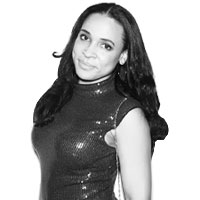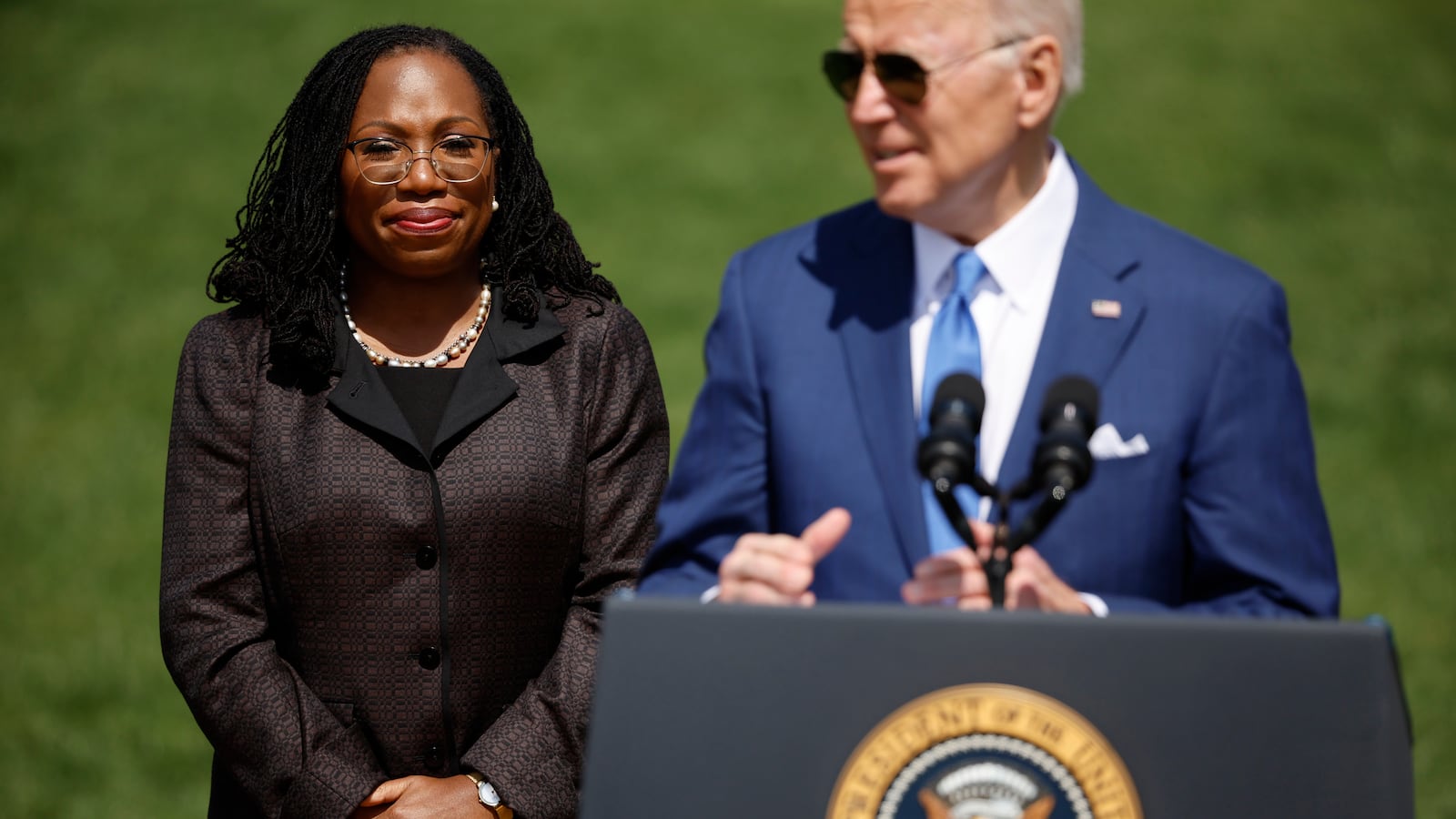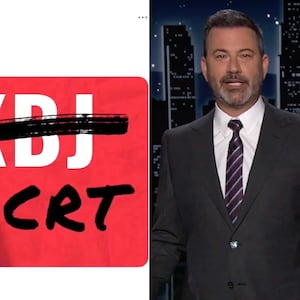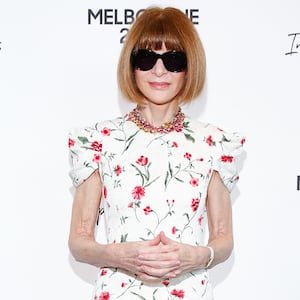It was supposed to be a momentous image: The first Black woman on the nation’s highest court, captured in a historic shoot for one of the world’s most distinguished publications. But the end product of Justice Ketanji Brown Jackson’s Vogue spread lit social media on fire this week, with many critics complaining that Vogue is too-high profile to continuously miss the mark when it comes to photographing Black subjects.
On Tuesday, famed photographer Annie Leibovitz sneak-peeked photos from what Vogue Editor-in-Chief Anna Wintour called a “historic portrait” for the mag’s famed September issue, released just before the Supreme Court’s new term begins in October. Jackson made history in April when she was confirmed as the first Black woman on the nation’s highest court.
“United States Supreme Court Justice, Ketanji Brown Jackson, Lincoln Memorial, Washington, D.C., 2022,” Leibovitz tweeted with two images of Jackson at the National Mall. The first showcased her leaning on a column, somewhat tucked in the shadows, while the bright marble statue of Abraham Lincoln radiates in the background. In the second image, Jackson sits in the foreground of a three-quarter shot, the Lincoln Memorial Reflecting Pool stretching behind her.
But the images got an overwhelmingly lukewarm reception online, where observers pointed to Leibovitz’s equally underwhelming photos of Black gymnast Simon Biles (for Vogue) and Black actress Viola Davis (for Vanity Fair) to question whether she simply has no idea how to illuminate darker-skinned subjects.
“Annie Leibovitz and Anna Wintour will one day pay for the crimes they’ve committed against Black women photographed in Vogue,” tweeted Evette Dionne, executive editor of the nonprofit news title Yes! Magazine, who was among those scratching their heads online.
“@voguemagazine, were there no Black women photographers available for this shoot? Shame on you and shame on @annieleibovitz. Justice KBJ deserves so much better,” tweeted Saira Rao, the co-founder of Race 2 Dinner, a non-profit organization that fights white supremacy through consultation-led dinners.
The Daily Beast spoke to professional Black photographers who said they understood, and respected, Leibovitz’s artistic style but felt it would have been more stylistically—and symbolically—appropriate for Vogue to pick a photographer of color for the historic shoot.
“It’s not like [Vogue] is a regular magazine or a regular photoshoot,” said Abu Elsadeg, a photographer of national and global events who agreed that the shoot was underwhelming. “I feel like more should have been delivered.”
Daphney Boutin, a photographer based in New York City who has worked in the industry for decades, said the lack of representation of Black people in prestigious magazine spreads made it even more important for those Black subjects to have Black photographers.
“For a magazine like Vogue and other top magazines… it would be nice to [use] a Black photographer,” she said. “There are plenty of fantastic, capable Black photographers.”
Brooklyn-based Oliver Covrett, a white photographer who specializes in creative portraiture, said that racial biases are perpetuated in the industry.
“I can certainly understand the public reaction to Annie Liebovitz’s [sic] recent images of Justice Ketanji Brown Jackson,” he told The Daily Beast. “We have a long history of white image makers that have, at best, displayed a lack of understanding of darker skin, and at much [worse], have intentionally demeaned and created a mockery of dark skin.”
Vogue magazine and its editor-in-chief, Anna Wintour, have previously come under fire for lackluster photoshoots involving Black people. A 2008 cover featuring athlete Lebron James and model Gisele Bündchen left viewers bewildered. According to Slate, James, the first Black man to be featured on the cover, was portrayed as the Black brute caricature terrorizing a white woman. In July 2020, social media users dragged the mag for its cover photos of Olympic gymnast Simone Biles, saying she “deserve[d] better” because of the dark lighting and Biles’ melancholic gaze.
Magazine images of Vice President Kamala Harris drew ire in Jan. 2021—but not because of the photographer, Tyler Mitchell, who is Black. Instead fans and readers called the shoot’s backdrop “a badly designed mess” that appeared as if it was thrown together at the last minute. The ordeal ruffled so many feathers that Vogue mustered up a limited edition re-release of the magazine—albeit, a cleaner version—that included a different image from the shoot, The Guardian reported.
“I don’t know how much kind of leeway [Jackson] had to choose [a photographer],” Boutin told The Daily Beast. “[Beyoncé] chose someone of color. And I think she demanded that.”
Mitchell made waves for his photos of Beyoncé for Vogue in Aug. 2018. However, Beyoncé had the unprecedented authority to find her own photographer for the cover, and she made sure they were Black.
Otherwise, Boutin said, Black subjects are seemingly at the hands of editorial leaders who may not understand their needs.
“When white people [are in charge] of these spaces ,” Elsadeg added, “companies are gonna source a white person.”
Representatives for Leibovitz, Vogue magazine and Condé Nast (the parent company of Vogue) did not immediately return The Daily Beast’s requests for comment.








